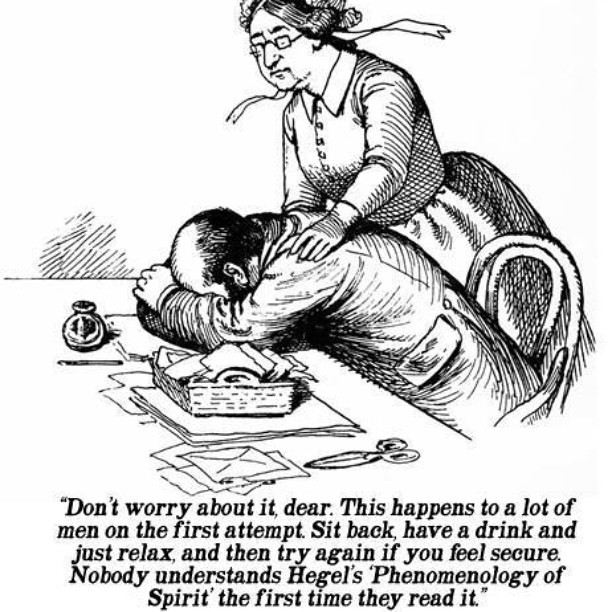Difference Between Case Study and Phenomenology
Both case study and phenomenology are involved with research processes. They are also concerned with in-depth investigations of their respective subjects. Regarding their distinctions, a case study is a research method while phenomenology is a methodology as well as a philosophical movement. More of their differences are discussed below.

What is a Case Study?
A case study is an in-depth investigation of an individual, group, institution, or event. It is a research method which examines a particular case in detail and answers the questions “why”, “how”, and “what”. Researchers who utilize this method may employ interviews, observations, document analysis, psychological testing, and other pertinent techniques in gathering information. The case-study method is believed to be first introduced by Frederic Le Play, a French engineer, sociologist, and economist, in 1829. Le Play had a comprehensive study on family budgeting (2017, Sclafani).
The following are the different types of case studies:
- Explanatory
This type focuses on an explanation for a phenomenon or research question. It answers the questions “how” and “why”.
- Exploratory
This often leads to a large-scale research since it aims to prove that further investigation is essential. Exploratory case studies answer the questions “what” and “how”.
- Comparative
This type focuses on the comparison of cases and answers questions such as, “How are cases different?” and “How are the cases alike?”.
- Collective
This type uses data from various studies to frame the new study. It uses past research to find more information without spending more money and time.
- Intrinsic
This type focuses on a more comprehensive understanding of a very specific case. Intrinsic case studies aim to answer the questions “what”, “how”, and “why”.
- Instrumental
This type aims to help refine a theory or generate more insights. Instrumental case studies play supportive roles.

What is Phenomenology?
“Phenomenology” came from the Ancient Greek word, “phainómenon” which means “thing appearing to view”. It is the study of conscious experiences from the first-person point of view (Gallagher, 2012). As a methodology, it is generally a qualitative approach which centers on the collection of research participants’ descriptions of their lived experiences.
It is also a philosophical movement founded by Edmund Husserl, a German philosopher, in the early 20th century. Phenomenology is based on the principle that a certain experience can be perceived in various ways, that an individual’s reality is different from another’s. For instance, you and your friend watched the same movie at the same time and place; however, the feelings and thoughts that you have experienced during the film are generally more positive than those of your friend’s.
There are two main approaches to phenomenology (Sloan, & Bowe, 2014):
- Descriptive Phenomenology
This is also known as transcendental phenomenology and was developed by Husserl. In this approach, the observer takes a global view of the phenomena. Its focus is on what is being experienced and on how it is being experienced.
- Interpretive Phenomenology
This is also known as hermeneutic phenomenology or existential phenomenology; this was developed by Martin Heidegger, Husserl’s student, and later his academic assistant. In this approach, the observer is one with the phenomena and is involved in interpreting meanings. As compared to descriptive phenomenology, interpretive phenomenology is more complex as it takes time and interaction with the environment into consideration.
Difference between Case Study and Phenomenology
Definition
A case study is an in-depth investigation of an individual, group, institution, or event. It is a research method which examines a particular case in detail and answers the questions “why”, “how”, and “what”. In comparison, “phenomenology” came from the Ancient Greek word, “phainómenon” which means “thing appearing to view”. It is the study of conscious experiences from the first-person point of view. It is also a philosophical movement based on the principle that a certain experience can be perceived in various ways.
History
The case-study method is believed to be first introduced by Frederic Le Play, a French engineer, sociologist, and economist, in 1829. Le Play had a comprehensive study on family budgeting. On the other hand, descriptive phenomenology, also known as transcendental phenomenology, was founded by Edmund Husserl, a German philosopher, in the early 20th century. Consequently, interpretive phenomenology, hermeneutic phenomenology, or existential phenomenology was developed by Martin Heidegger, Husserl’s student, and later his academic assistant.
Types or Approaches
The types of case studies include explanatory, exploratory, comparative, collective, intrinsic, and instrumental. In comparison, the two main approaches to phenomenology are descriptive phenomenology and interpretive phenomenology.
Data Collection Methods
Researchers who conduct case studies may employ interviews, observations, document analysis, psychological testing, and other pertinent techniques in gathering information. As for the phenomenological approach, the main data gathering technic is interviews.
Research Population
Case studies focus on an individual, a group, an institution, or an event while phenomenology research looks into the lived experiences of several individuals.
Case Study vs Phenomenology

Summary
- A case study is an in-depth investigation of an individual, group, institution, or event.
- Phenomenology is the study of conscious experiences from the first-person point of view.
- The case-study method is believed to be first introduced by Le Play while descriptive phenomenology was founded by Husserl.
- Researchers who conduct case studies may employ interviews, observations, document analysis, and psychological testing while those who conduct phenomenological research mainly use interviews.
- Case studies generally focus on an individual or group while phenomenological research delves into the experiences of several individuals.
- Difference Between Hematoma and Melanoma - February 9, 2023
- Difference Between Bruising and Necrosis - February 8, 2023
- Difference Between Brain Hematoma and Brain Hemorrhage - February 8, 2023
Search DifferenceBetween.net :
Leave a Response
References :
[0]Gallagher, Shaun. What Is Phenomenology? London: Macmillan, 2012. Print.
[1]Sclafani, Chris. A Case Study Primer: Origins and basic Principles. Global Journal of Human-Social Science: G Linguistics & Education, vol. 17, no. 3, 2017, ISSN: 0975-587X.
[2]Sloan, Art and Bowe, Brian. Phenomenology and Hermeneutic Phenomenology: The Philosophy, the Methodologies and Using Hermeneutic Phenomenology to Investigage Lecturers' Experiences of Curriculum Design . Technological University Dublin Quality & Quantity, 2014, vol.48, no.3, pp.1291-1303. doi:10.1007/s11135-013-9835-3
[3]Yin, Robert. Case Study Research. London: Sage Publications, 2003. Print.
[4]Image credit: https://www.thebluediamondgallery.com/legal/images/case-study.jpg
[5]Image credit: https://live.staticflickr.com/550/19717873503_65373a524b_z.jpg
